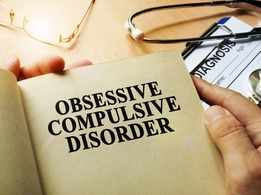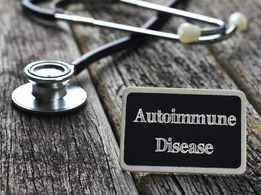01/5The best time to walk for weight loss
)

Walking every day has many health benefits including weight loss. For those who cannot go to the gym or do rigorous workouts, walking is the best way to stay fit and healthy. Interestingly, according to a new research, walking after a meal can provide additional health benefits. In this article, we will have a look at the benefits of walking, how much you need to walk every day, how to maximise the benefits and the best time to walk for weight loss.
02/5Best time to walk
)

It goes without saying that walking at any time of the day is great for physical as well as mental well-being, however, walking after meals is particularly helpful in weight loss and diabetes management. People who don't have any health conditions can walk every day to prevent any future health complications.
03/5How walking can help in weight loss
)

There is a base amount of calories we all burn in a day, which is referred to as resting metabolism. This number stays relatively stable depending on the amount of movement we do each day by walking inside the house, running errands. Intentional exercise adds to the total number of calories we burn. But it needs to be understood that weight is not a simple calorie equation. Adding more movement in your daily life can help in increasing the calorie burn and thus weight loss.
Working out regularly doesn't just help with weight loss but also helps manage the blood sugar levels. A study conducted in 2016 found that walking 10 minutes after each meal helps in lowering the blood sugar level in people suffering from type 2 diabetes. Walking 10 minutes after having a meal is more beneficial than walking for 30 minutes during any other time of the day.
04/5How exactly walking can help in controlling blood sugar and weight loss
)

When you walk or do any other form of exercise, your heart rate increases and your muscles start to prefer carbohydrates or sugar as the primary source of energy. When you eat carbs in a meal, your blood sugar spikes as it is the job of the insulin to help pull that sugar out of the blood and deliver it to all the cells of the body. When you walk after a meal, the amount of sugar your muscles require increases, which helps us get rid of the extra sugar in the bloodstream. Managing blood sugar level aids weight loss.
05/5How much exercise you should do daily
)

There are various rules and recommendations about the amount and type of exercise you should be doing daily. The American Heart Association recommends 150 minutes of moderate-intensity aerobic exercise like walking every week. Walking at a moderate speed for 21 minutes every day can reduce the risk of heart disease and type 2 diabetes. It also promotes bone health and weight loss.






























































![[Gym] Leg Training (voice-over with tips)
[Gym] Leg Training (voice-over with tips)](https://static.toiimg.com/thumb/77056786.cms?width=147&height=86)








closecomments
SIGN IN WITH
FacebookGoogleEmail